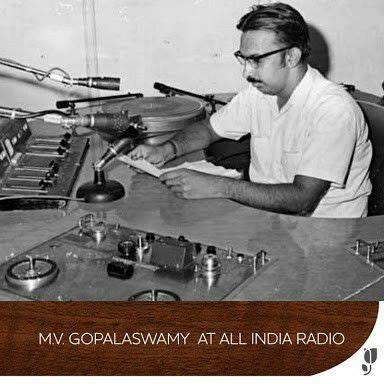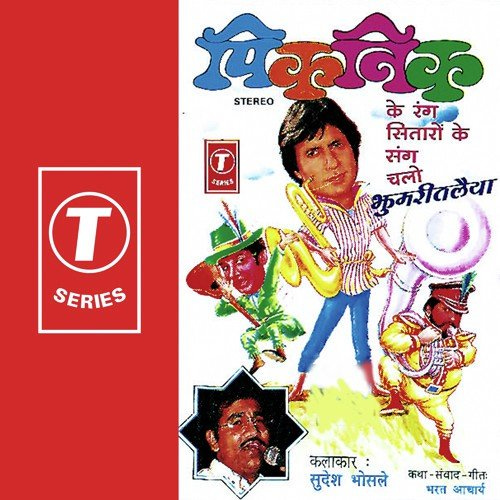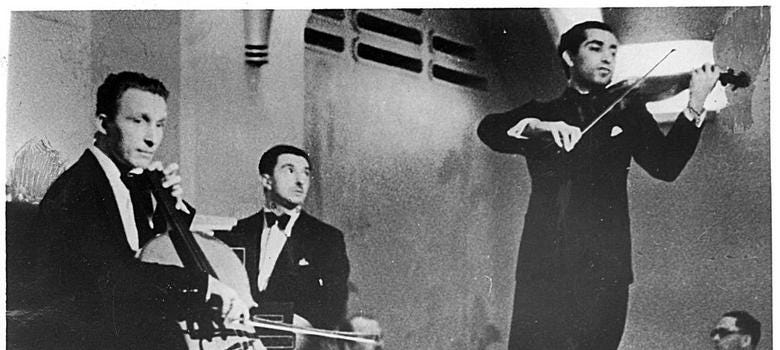Here's our weekly Mann ki Baat | #153
Also, how many of these 5️⃣0️⃣ Sachin facts did you know?
Namaste friends,
The first radio broadcast in India was in 1923 and was a message from the Governor of Bombay. Today radio is more popular than ever before, with stations covering everything from news and politics to music and entertainment. So whether you're rocking out to your favorite tunes, or just really looking forward to someone say InsuranceIsASubjectMatterOfSolicitationPleaseReadTheOfferDocumentCarefullyBeforeInvesting, radio in India has got you covered.
This week’s newsletter - we want to share our Mann Ki Baat on some interesting stories about All India Radio.
Things we learnt this week 🤓
At the launch of the Calcutta Radio shortwave transmission service in 1938, Rabindranath Tagore wrote a poem titled Akashvani (Voice from the sky). In 1956, when All India Radio was established, it was christened as Akashvani and since then we have heard “Yeh Akashvani Hai”. So did Rabindranath Tagore coin the term Akashvani? Not entirely true. In the humble town of Mysore, a professor of psychology and principal of Maharaja’s college, started the Mysore station on September 10, 1935 and called it Akashvani. Looks like we need a voice from the sky to tell us who coined Akashvani first?
Rameshwar Prasad Barnwal was a mica merchant. He started mailing song requests on Radio Ceylon. After hearing the name of Rameshwar Prasad, Ganga Prasad Magadhiya, a paan seller also started sending requests. The duo continued to send requests and the small town of Jhumri Telaiya became synonymous with Radio Ceylon and Vividh Bharati. The town’s fame was enhanced when a popular audio-cassette entitled Picnic ke Rang, Sitaron ke Sang, Chalo Jhumritelaiya was released by T-Series, Sudesh Bhosle mimics the voices of stars from Dilip Kumar to Amrish Puri while recounting their adventurous bus journey to, yes, Jhumri Telaiya. The residents of this small town indeed had a Vividh imagination.
All India Radio’s iconic tune owes its origins to an Austrian fleeing the Nazi oppression - Walter Kauffman. He was trained in Prague and Berlin before fleeing the Nazi persecution to work in Bombay. In 1936, he composed the tune which was based on raag Shivaranjini. Walter Kauffman worked as the director of music at the All India Radio and during his time interacted with many classical Indian musicians and imbibed their music into his art. He left India after independence but his music is still a part of our lives.
Bonus Fun Fact™️ about the photo below:
The man on the piano is Walter Kauffman, the creator of the AIR tune. The man on the violin is Mehli Mehta, the father of Zubin Mehta
From IWTK, with love 💌
Sachin Tendulkar celebrated his 50th birthday. We devotees decided to honor him with a thread full of facts about him. How many of these had you known?
The incredible story of P.K.Rosy - a film actress who wasn’t allowed to see her own film as she was a Dalit. Know more about her.
Only In India 🇮🇳
There is a Netflix series TikTok waiting to happen on the sequence of events seen here.
Share this newsletter on WhatsApp
Stay hydrated,
❤️ IWTK






